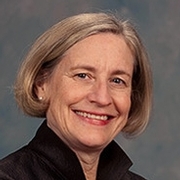Challenging our comfort zones
November 8th, 2016 | SIT Study Abroad

The importance – and challenges – of getting students out of their comfort zones
By M. Priscilla Stone
The challenge for international educators has never been more difficult or more important. Our commitment to introducing our students to the very different worldviews, beliefs and behaviors they will encounter while studying abroad has taken on increasing urgency as our own campuses and society grapple with understanding difference and inclusion. The recent shootings in Orlando bring this complexity into painful focus. How can we best respond?
One of the fundamental tenets of international education has always been that the time abroad should be seen as an opportunity to “get out of your comfort zone,” and learn to respect and appreciate differences of worldview and opinion. We knew this was often jarring and uncomfortable, as students explored their own identities in the context of what were very different cultural and societal norms abroad. Our job was not to protect students from this challenge, but to intellectually and emotionally support them as they worked through the various stages of questioning and exploring.
This no longer seems quite adequate or appropriate, given what has been occurring on campuses in the United States, as well as in our society more broadly. The shootings in Orlando are a painful reminder that the way we think about difference – religious, sexual orientation, ethnicity, and heritage – is never simple. The jarring that we all feel is in no way confined to the home-versus-abroad dichotomy, but is one that lives among us, in our own communities and on our campuses.
While U.S. campuses are now hosting these debates about the nature and future of diversity in our society, huge divides have emerged. Most every university and college proudly celebrates its commitment to diversity and inclusion in its mission statement, but in reality there has been a radical shift in how these values are expressed and debated. Whether it is demonstrations supporting the Black Lives Matter movement, LGBTQ pride events or Diwali celebrations, campus officials increasingly are challenged to acknowledge and accommodate divergent voices.
In the classroom, educators are urged to diversify their syllabi, to adopt new norms of respectful dialogue and to protect students from harmful experiences. The idea of a “safe space” for students, for instance, that encourages them to leave difficult or painful conversations, is a common option.
Given the increasing violence and expression of difference and divide in our public discourse, our campuses and their sensitivities to diversity may strike some as ivory towers, divorced from everyday life. They also may seem increasingly puzzling to our colleagues and institutions abroad: the luxury of the privileged with lingering suggestions of cultural imperialism.
How appropriate is this approach to classrooms abroad? Should we expect the resident directors of our programs abroad to re-create this very American environment?
An added layer of complexity is the dynamic within our classrooms abroad in which U.S. students from different heritages, classes, races, ethnicities, gender identities and geographic origins must learn to not only tolerate each other but to work together, to learn from one another and to celebrate their diversity, all while being challenged by the vast sea of difference all around them. While this refers most explicitly to the model of study abroad in which groups of U.S. college students are in class together, many of the basic principles apply more broadly.
I began with the idea that getting students out of their comfort zone was a positive aspect of studying abroad. Is this still possible given the current climate? Can we do this in a careful and mindful way that challenges them to explore and grow while protecting them from harm? This may be impossible, but I believe we have to try. This is too important.
It is inappropriate to attempt to transport the U.S. campus and classroom abroad; we should prepare our students for a different pedagogical and ethical context. This is where they will learn and grow the most. But at the same time, we must continually be vigilant to provide the most robust support systems – counselors, well-trained staff and opportunities to debrief as a group – to make sure students are building the confidence in their abilities to appreciate the diversity that will propel them into successful careers and lives in our global society.
We must urge our students to go abroad with hearts and minds open to the people they meet abroad, but just as important, to each other. This could, in the end, be the most significant contribution of our programs abroad to the educational and civic mission of our colleges and universities. Let’s hope we are up to the challenge.
Dr. M. Priscilla Stone is vice provost for study abroad at SIT Study Abroad.
